
Sumitra Peries
Director
-
Birthday
-
Zodiac Sign
-
Genres
0
Total Films
Also known as (female)
Place of Birth
-
Birthday
-
Zodiac Sign
-
Genres
0
Total Films
-
Also Known As (female)
-
Place of Birth

-
Birthday
-
Zodiac Sign
-
Genres
0
Total Films
Also known as (female)
Place of Birth
-
Birthday
-
Zodiac Sign
-
Genres
0
Total Films
-
Also Known As (female)
-
Place of Birth
actor
0 Works
producer
0 Works
director
11 Works
writer
0 Works
other
4 Works
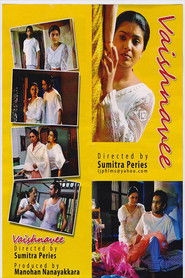
The Tree Goddess
Vaishnavee (The Goddess), (Sinhalese: වෛෂ්ණාවී) is a 2018 Sri Lankan Sinhala drama thriller film directed by veteran director Sumitra Peries and produced by Mano Nanayakkara. 1930’s, Sri Lanka. Partly a compelling domestic drama, and a demonic love story, the narrative follows a puppet-maker who’s set to be married to a young girl. Unfortunately, the girl elopes with her secret lover. Devastated, the grieving puppet-maker ends up carving a puppet in her likeness, which eventually comes to life, setting in motion a fantastical chain of events.Year:
2018
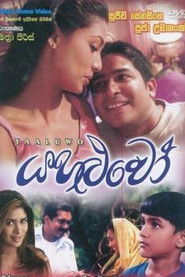
Friends
Yahaluvo (Friends) (යහළුවෝ), also known as Yahaluwo, is a 2007 Sinhala romantic drama film. It was directed by Sumitra Peries, produced by Namal Senasinghe, the brother of Sujeewa Senasinghe, and scored by Navaratne Gamage. The film stars Sujeewa Senasinghe and Pooja Umashankar in lead roles along with Iranganie Serasinghe, Tony Ranasinghe, Kamal Addararachchi, and Anarkali Akarsha in supportive roles. It is the 1097th Sri Lankan film in the Sinhala cinema.Year:
2007
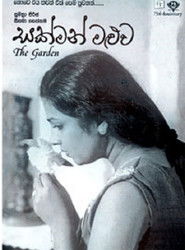
The Garden
The calm, dull marriage of a young woman and her much older husband is disturbed when the man's younger brother arrives at their home.Year:
2003
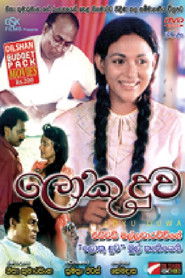
Loku Duwa
"Loku Duwa" depicts an attractive and self-sacrificing daughter of the middle class in the city who is trapped in a family of traditional values.Year:
1994
Sagara Jalaya Madi Handuwa Oba Handa
Voted for in Sight & Sound's 2022 Greatest Films of All Time pollYear:
1988
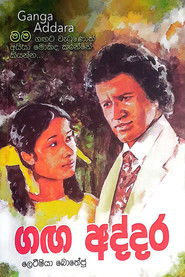
The River's Edge
England educated Dr. Sarath Pathirana (Vijaya Kumaratunga), who is willing to try out new methods to treat his patients, is directed towards a special patient by the Head Doctor (Henry Jayasena) at the mental hospital. This patient is a beautiful girl named Nirmala…Year:
1980

The Girls
The Girls is about the growing up of two schoolgirl sisters and the disappointments to which they are condemned by their impoverished backgrounds.Year:
1978

The Girls
The Girls is about the growing up of two schoolgirl sisters and the disappointments to which they are condemned by their impoverished backgrounds.Year:
1978
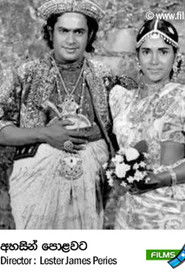
White Flowers for the Dead
Dr. Sarath (Tony Ranasinghe) domineers over his timid wife Vineetha (Sriyani Amarasena). When she is to have a Caesarean delivery of their baby, Sarath refuses to be present even though he himself is a doctor. She dies during surgery and Sarath is forced to live with the spectre of his wife hanging over him.Year:
1978

Mangrove Island
Madol Duwa (Mangrove Island) is a 1976 Sri Lankan drama film directed by Lester James Peries and produced by Upasena Marasinghe. The film stars Ajith Jinadasa as Upali, a young rebellious youth who travels to a small island to get away from the restrictive society around him. The film is based on Martin Wickremasinghe's 1947 novel Madol Doova. It was a commercial successYear:
1976
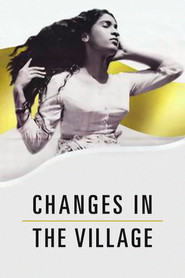
Changes in the Village
Piyal is a handsome young teacher who is hired to teach English to Nanda, a member of a high class family. They fall in love, but can't elope because Piyal is of a lower class. Nanda's parents instead push her into a marriage with Jinadasa, who is of the same class as them. With economic downturn in Sri Lanka, both families lose their status and Jinadasa leaves to try to make a better life for himself; he never achieves his goal and dies penniless. Piyal and Nanda can now finally come together. They have changed however, and the earlier idylic nature of their relationship is not recaptured.Year:
1963